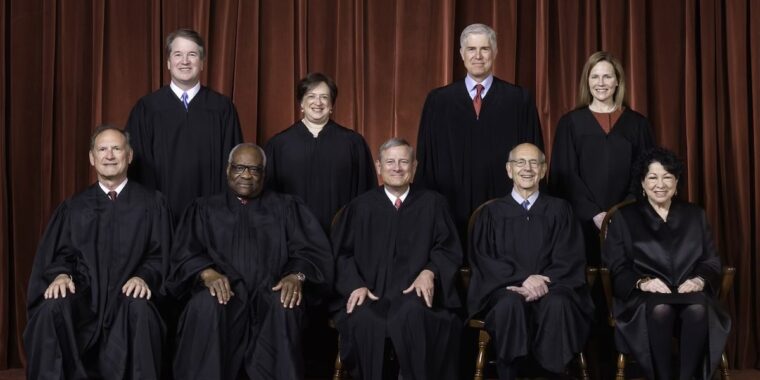
On Friday, June 24, 2022, the Supreme Court announced that the Justices came to a landmark decision regarding abortion’s Constitutional legality. After almost 50 years, the Dobbs v. Jackson Women’s Health Organization ruling completely overturns Roe v. Wade, allowing each state to individually establish the laws that regulate access to abortion services. In 1973, the Court determined that the Constitution largely protects a woman’s right to an abortion if she so desires. However, the majority opinion, which consisted of Justices Alito, Thomas, Gorsuch, Kavanaugh, and Barrett, decided differently. They stated in their opinion that the Constitution holds no Federal jurisdiction over the matter of abortion. On the opposition stood Breyer, Sotomayor, and Kagan who wrote in their dissent that the United States cannot force childbirth. They believe that this law would be a step backwards for women’s equality, thus the Constitution should protect abortive services.
Though a landmark decision is always a shock to the nation, the recent decision does not come as too much of a surprise considering the Politico leak on May 5, 2022. About a month and a half ago, the paper published a piece exposing the classified draft and decision-making process of the Justices. In the notes, the nation discovered that Roe v. Wade would likely be overturned in the next coming month or so when the Dobbs decision was meant to be released. Much is still unknown about the unprecedented release of the Supreme Court classified document.
Now that the Supreme Court overturned Roe v. Wade, many wonder how the states will function regarding abortion laws. In several states, there are trigger laws that immediately go into place without the Federal protection of abortion. This means that Arkansas, Idaho, Kentucky, Louisiana, Mississippi, Missouri, North Dakota, Ohio, Oklahoma, South Dakota, Tennessee, Texas, Utah, and Wyoming will promptly enact laws that completely prevent abortion or highly restrict the access. On the other hand, there are several states that will remain the same with full or limited access to abortion.
Unsurprisingly, the Supreme Court decision and its effect garners deeply contrasting reactions from all Americans. The Pro-Life community clearly views this as a major victory for their movement. Since the Roe V Wade decision, those against abortion annually gathered in Washington, D.C. for the March for Life to protest Roe’s effect on the nation in hopes that the ruling would be overturned. Now, they rejoice knowing that there will be a reduction in the access to abortion nationwide. Contrarily, the Pro-Choice community is generally outraged by the new reality that the Federal government cannot protect a woman’s access to an abortion. They view this as a retrogressive action concerning gender equality. Many remain concerned with the idea of forced childbirth where a mother must give birth to her child without further assistance from the government. Going forward, the nation will encounter a Pre-Roe era that it has not experienced over the last 50 years, likely being a greatly debated topic in gubernatorial elections.


Long living the peace